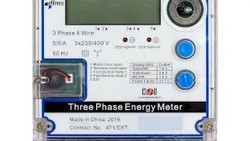As the energy sector continues to evolve rapidly, the need for a skilled and diverse workforce becomes increasingly important. Utilities are finding innovative ways to cultivate talent streams that go beyond traditional technological roles and encompass areas such as data analysis, renewable integration, and customer engagement. One effective approach is through focused collaboration between utilities and educational institutions, which ensures that tomorrow's energy practitioners are well-prepared for the challenges of the industry.
Community College Partnerships
Utilities are taking an active role in advising technical certificate curricula at community colleges. By emphasizing areas such as substation automation, protective relaying, and cybersecurity, these partnerships ensure that the skills taught align with the hiring demands of the industry. Additionally, utilities are providing paid internships that offer hands-on training, often leading to full-time employment opportunities.
University Support
To keep educational institutions at the forefront of energy research, utilities are sponsoring labs and facilities, upgrading equipment, and providing financial support. These collaborations not only enhance research capabilities but also help utilities recruit top graduates into their workforce through scholarship programs and career fairs.
K-12 STEM Guidance
Utilities are actively involved in promoting Science, Technology, Engineering, and Mathematics (STEM) subjects in K-12 education. They serve as expert mentors during classroom visits and participate in project competitions, introducing energy concepts early on and increasing awareness of career opportunities in the energy sector. This proactive engagement aims to boost diversity in the future applicant pools.

(symbol image, credit Pexels)
Applied Joint Research
Partnerships between utilities and engineering programs have proven to be fruitful in driving innovation. By working together on projects centered around real challenges faced by utilities, students gain practical experience while helping utilities pilot solutions such as distribution automation or microgrid design. This collaborative approach not only benefits the students but also helps utilities tackle complex problems with fresh perspectives.
CLOU's Post-Doctoral Program
One notable example of education collaboration is CLOU's post-doctoral program for research. This program offers researchers the opportunity to collaborate with industry professionals, contribute to cutting-edge projects, and gain practical experience in areas such as energy metering, smart grid technologies, and renewable energy integration. Through this program, CLOU is actively bridging the gap between academia and industry, fostering innovation, and advancing research in the energy sector.
Takeaway
Collaboration between utilities and educational institutions is essential for developing pipeline talent in the energy sector. Through partnerships, internships, mentorship programs, and joint research initiatives, we can bridge the gap between education and industry, ensuring a skilled workforce for the energy transition.
Thank you for reading. If you would like to share your thoughts on this topic, please feel free to leave a comment below. We value your feedback and are always eager to hear from our readers.
Until then, keep shining bright like a solar panel on a sunny day!





All comments are moderated before being published. Inappropriate or off-topic comments may not be approved.